EXperiential And MultidisciPlinary Learning and
Education (EXAMPLE) Convening
An in-person convening highlighting education programs across federal agencies and offices to increase awareness, share lessons learned, and identify needs.
The convening will consist of four panels of experts who will discuss: the value of interdisciplinary collaboration; the importance of evaluation and metrics of success; the stories of professionals who benefited from different experiential training programs; and the experiential training programs available at user facilities. The convening will raise awareness and share lessons learned from such programs across the federal government, as well as catalyze discussions that may inform future efforts.
This convening is for education professionals and researchers interested in learning about federally funded opportunities and for federal program managers curious about opportunities at other agencies. The agenda will include panelists representing programs from DOD, DOE, DOL, NASA, NSF, USDA, and more!
Draft agenda | |
| 8:30 a.m. to 5:00 p.m. ET | |
| Time (ET) | Session |
| 8:30 – 9 a.m. | Coffee and networking |
| 9 – 9:15 a.m. | Welcome and Introduction |
| 9:15 – 10:30 a.m. | Panel 1: The importance of interdisciplinary collaboration for the future of work |
| 10:30 – 11 a.m. | Break |
| 11 am – 12:15 p.m. | Panel 2: Evaluators and metrics of success |
| 12:15 – 1:30 p.m. | Lunch & networking |
| 1:30 – 2:45 p.m. | Panel 3: Highlighting success stories from different federal programs |
| 2:45 – 3:15 p.m. | Break |
| 3:15 – 4:30 p.m. | Panel 4: Federal user facilities and training programs |
| 4:30 – 5 p.m. | Event summary |
| 5:00 p.m. | No host social, location TBD |
Panel titles and invited panelists | |||
| Panel 1: The importance of interdisciplinary collaboration for the future of work | |||
 |  |  | |
| Christine Hendren Vice Provost for Research & Innovation and Professor of Geological and Environmental Sciences, Appalachian State University | Sayantani Ghosh Associate Dean of Graduate Division and Professor of Physics, University of California, Merced | Robert Finnegan Head of Education and Workforce, Advanced Functional Fabrics of America (AFFOA) | |
| Panel 2: Evaluators and metrics of success | ||||
 |  |  |  | 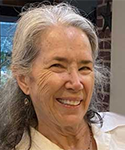 |
| Terryll Bailey President of the Allison Group and External Evaluator for the Micro Nano Technology Education Center | Kerrie Douglas Associate Professor of Engineering Education, Purdue University | Rick Gilmore Performance Assessment and Evaluation Program Manager, NASA | Joni Lakin Professor, Department of Educational Studies, University of Alabama | V. Celeste Carter Program Director, Division of Undergraduate Education, STEM Education Directorate, National Science Foundation Moderator |
| Panel 3: Highlighting success stories from different federal programs | |||
 |  |  | 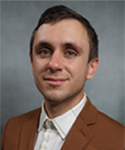 |
| Kris Dorsey Associate Professor, Electrical and Computer Engineering & Physical Therapy, Movement, and Rehabilitation Sciences, Northeastern University | Zachary Gray Managing Director, Center for Nanotechnology Education and Utilization, Penn State University | Samad Virani IB Physics and Chemistry Teacher, Uplift Luna Preparatory | Connor Kokora Undergraduate Student, University of North Texas |
| Panel 4: Federal user facilities and training programs | ||||
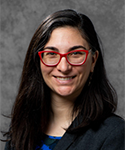 |  | 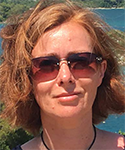 |  | 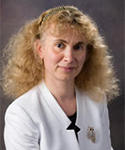 |
| Laleh Coté STEM Education Program Manager, Workforce Development & Education, Lawrence Berkeley National Laboratory | Mike Russo President and CEO, National Institute for Industry and Career Advancement | Francesca Tavazza Group Leader, Data and AI-Driven Materials Science Group, Materials Measurement Science Division, National Institute of Standards and Technology (NIST) | Mikkel Thomas Associate Director for Education and Outreach, National Nanotechnology Coordinated Infrastructure coordinating office, Georgia Tech | Marina A. Dobrovolskaia Director of Operations, Head of Immunology Section, Nanotechnology Characterization Laboratory, Frederick National Laboratory for Cancer Research, National Cancer Institute, National Institutes of Health Moderator |


